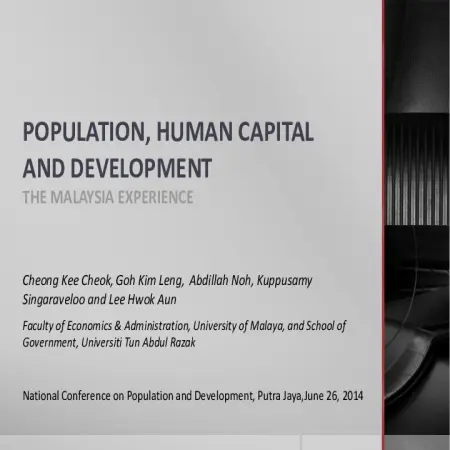| Item type |
Conference or Workshop Item |
| Subjects |
300 Social sciences > 303 Social processes |
| Division/Agency |
LPPKN - National Population and Family Development Board, Malaysia: Population and Family Research Division |
| Keywords |
Population, Human capital, Development, Malaysia |
| Additional Information |
National Population and Family Development (NPFDB) in collaboration with Population Studies Unit, Faculty of Economics and Administration, University of Malaya. |
| Abstract |
Like other countries in East and Southeast Asia, Malaysia has undergone a rapid demographic transition to low fertility. This has meant a growing share of the economically active population that will eventually peak as ageing becomes more pronounced. The potential increase in the labor force has been undermined by both rising enrollment in upper secondary and tertiary education, as well as by many females remaining outside the labor force. Together with high economic growth, this has created a shortage of labor. Immigrant labor, both legal and illegal, has stepped in to fill the gap but entrenched a low labor cost model. Breaking out of this requires strengthening the country’s human capital base. While generous government expenditure and liberalization of the education sector has resulted in significant gains in numbers enrolled, several factors have had a negative effect on education quality. Unless reversed, this deterioration has long-term implications for the country’s development. |





